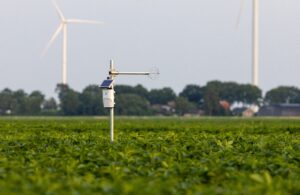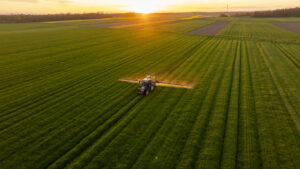Chicory processor Sensus has been using Dacom for over 5 years to improve the cultivation of chicory. Growers are supported in making decisions before and during cultivation, with the aim of achieving a higher average yield.
When we gather at the office of René Schunselaar, agro manager at Sensus, at the end of November, the chicory campaign is in full swing. Water vapor rises from the chimneys. Trucks from Zeeland, Brabant, Limburg, Drenthe, Groningen, and Belgium come and go. It’s not an easy processing season for Sensus. Due to an erratic growing season, there are more problems with weeds, which slows down the processing in the factory. This brings us directly to the link between Sensus and Dacom. With data-driven decisions, the company supports growers to improve cultivation, including weed control.
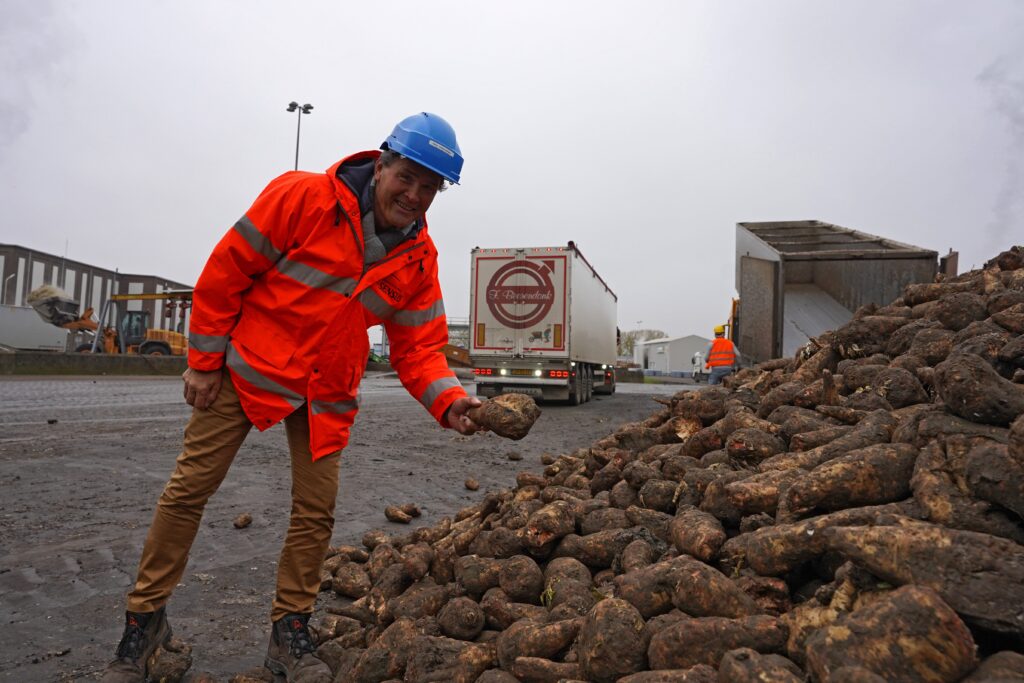
Cimone
Almost 10 years ago, Sensus approached Dacom. ‘We were looking for a partner who wanted to brainstorm with us to develop solutions that could support growers in improving crop yields,’ explains Schunselaar. ‘Essentially, a cultivation evaluation tool that allows growers to assess their own crop performance and compare it with colleagues in the region.
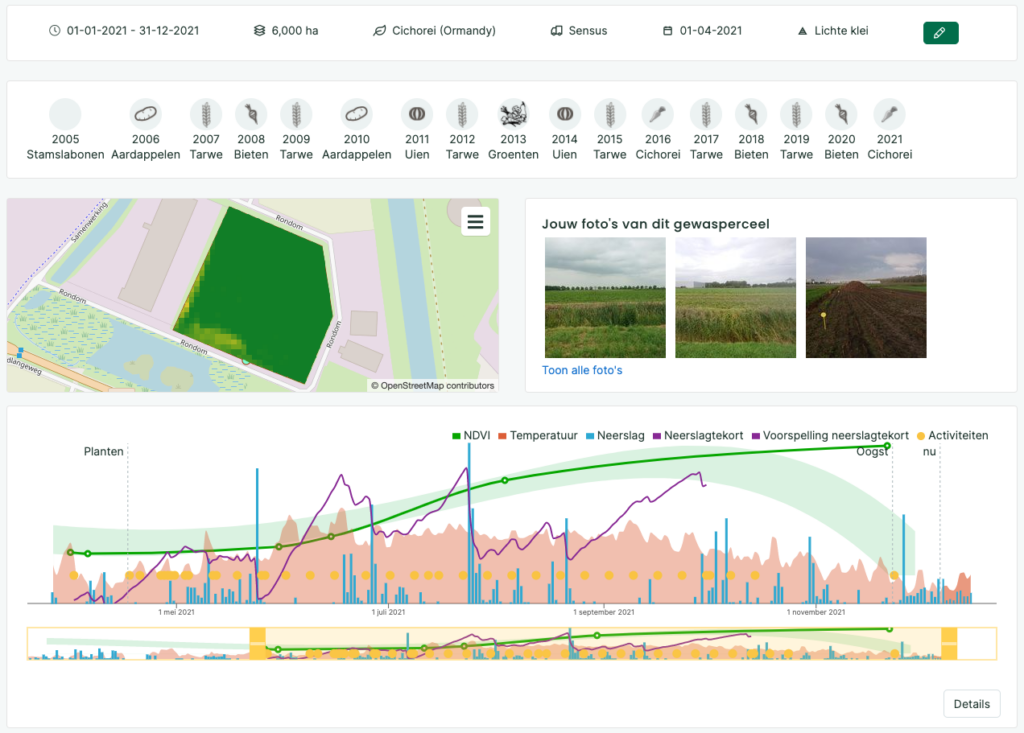
Dacom was given space to develop this. The first step was the implementation of online crop registration. The cultivation data is compared with the yield monitor, called ‘Cimone.’ The chicory monitor focuses on achieving 10 tons of inulin per hectare. At the outset, this was an average of 7 tons. In terms of yield, an increase of 3 tons translates to a profit increase of €1400 per hectare.’
Data-driven advisory services
Sensus and Dacom work with three-year contracts in which new focal points and goals are set. In the last period, Cloudfarm was introduced among other things. Schunselaar says, ‘This enabled us to start using satellite images to monitor cultivation. This way, we collect valuable data that can be used to evaluate the growing season afterward, together with the grower. Cultivation partners CZAV and Agrifirm assist in this process. Why was the yield good or not? The use of data is becoming increasingly important. What’s new here is yield measurement on the harvesting machine. Thanks to a Dacom connection, the yield data from Vervaet Connect is automatically loaded. Three harvesters are now equipped with this.’
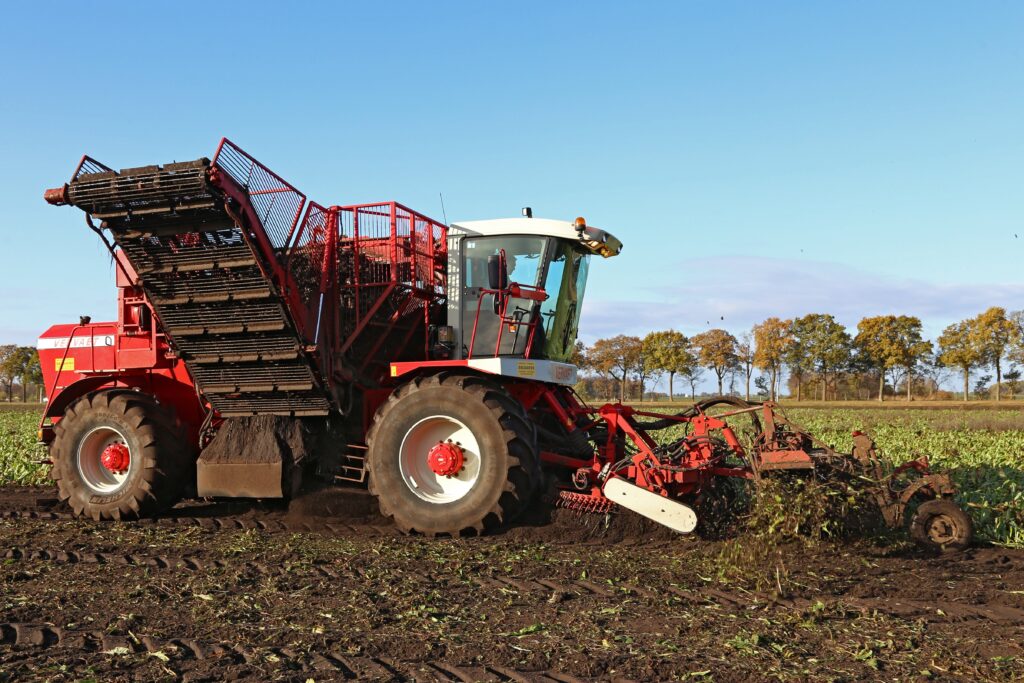
In recent years, Dacom and Sensus have developed a number of functionalities. Schunselaar lists them: ‘determination of sowing date, disease prevention for leaf molds, harvest and location, and of course crop registration.’
Voor ons als verwerker worden we door groei- en opbrengstmodellen geholpen om zo efficiënt mogelijk te kunnen werken. Vooral naar de toekomst toe is dat een doel.
Weed control
In addition to the whims of the weather, chicory cultivation faces extra challenges, especially in terms of weed control. ‘With the disappearance of important herbicides, it has become more difficult to keep weeds under control,’ acknowledges Schunselaar. ‘By assisting in the choice of the best plot and the best sowing date, we hope to give the crop an advantage. In the initial period, chicory develops slowly, allowing weeds to quickly take over. There are sulfonylurea (SU) tolerant varieties, where you can spray with a higher dose of herbicide Titus or Safari. However, this costs 5 to 10% of the yield. That’s why chicory hasn’t shown as much yield increase in the last 10 years as sugar beet has. Only now are we reaching the old yield level. In addition to decision support, we financially support growers in purchasing precision hoeing equipment and a weed puller. We ourselves have purchased a robot for 2022 that can sow and hoe autonomously. We want to gain experience with that.’
Data effortlessly
Sensus does not require participation in Dacom, but over 95% of the 600 affiliated growers use it. ‘In addition to helping growers increase the yield of chicory cultivation, we encourage its use with a surcharge of €3 per ton of chicory,’ says Schunselaar. Our ultimate goal is to work together with Dacom and the growers to achieve 10 tons of inulin per hectare of chicory. The data collection – on which the cultivation advice is based – is automated as much as possible to not burden the grower additionally. The growth model and yield prediction are part of this. We focus on expanding cultivation, as the market for inulin is good. By providing low-threshold and simple support with data-driven cultivation decisions, we support the grower.’ This year, the area in our country amounts to 3,855 hectares, as shown by data from Boerenbunder. Sensus is still looking for expansion for the 2022 season.

